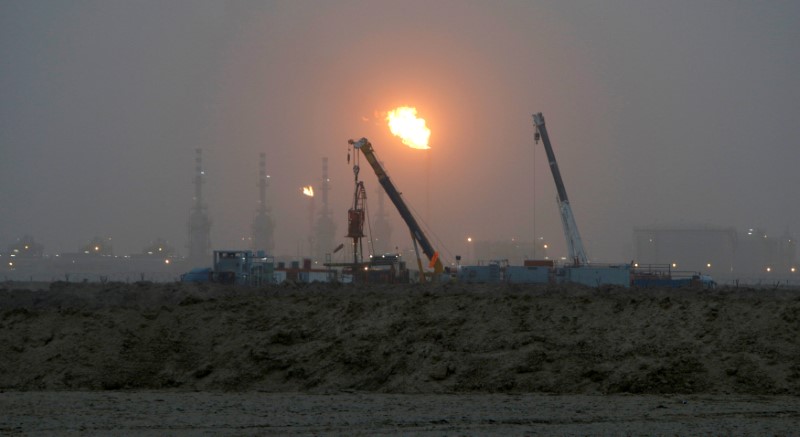By Barani Krishnan
NEW YORK (Reuters) - Oil rose more than 1 percent on Monday, with Brent settling above $50 a barrel the first time since August and U.S. crude hitting three-month highs, after Iran exhorted the need for other oil producers to join OPEC in supporting the market.
The dollar's (DXY) retreat from session highs also enticed more buyers into oil as greenback-denominated crude became less costly to holders of other currencies. [FRX/]
Iranian President Hassan Rouhani told his Venezuelan counterpart Nicolás Maduro in a telephone conversation that it was essential for oil producing countries to take a decision to raise the price of oil and stabilize the market, Tehran state news agency IRNA reported.
Rouhani's remarks added to the bullish fervor in the market since Wednesday after the Organization of the Petroleum Exporting Countries announced its first planned output cut in eight years. [nL8N1C42M9]
Brent (LCOc1) settled up 70 cents, or 1.4 percent, at $50.89 a barrel. It was its first close above the key $50 mark since Aug. 19. Brent earlier reached a session peak of $51.14.
U.S. West Texas Intermediate (WTI) crude (CLc1) closed up 57 cents, or 1.2 percent, at $48.81. Prior to settlement, it hit $49.02, its highest since July 5.
Iran's call to non-OPEC members helped the market to rally "because there are many who want to believe this deal will get done," said Phil Flynn, analyst at the Price Futures Group brokerage in Chicago.
"There's already a soft commitment from Russia that it will be part of the OPEC plan and if more non-OPEC members get on board, prices can only go higher," Flynn added.
Oil prices rose about 7 percent in September, ending up a second straight month, after OPEC unveiled plans to reduce output to between 32.5 million and 33.0 million barrels per day.
How much oil each country will produce is to be decided at the next formal OPEC meeting in November, when an invitation to join cuts could also be extended to non-OPEC countries such as Russia.
OPEC's oil output likely reached 33.6 million bpd in September from a revised 33.5 million bpd in August, its highest in recent history, a Reuters survey found on Friday.
OPEC member Iran, the No. 4 crude exporter, will sign on Tuesday a new petroleum contract that would be cornerstone to raising its crude output to the pre-sanction levels of 4 million bpd.

"Naysayers will undoubtedly fade the headline (of the output cut) and deem the agreement typical OPEC noise, yet at a minimum it means that OPEC has bought themselves a price floor for at least the next two months heading into the November meeting," analysts at RBC Capital Markets said in a note.